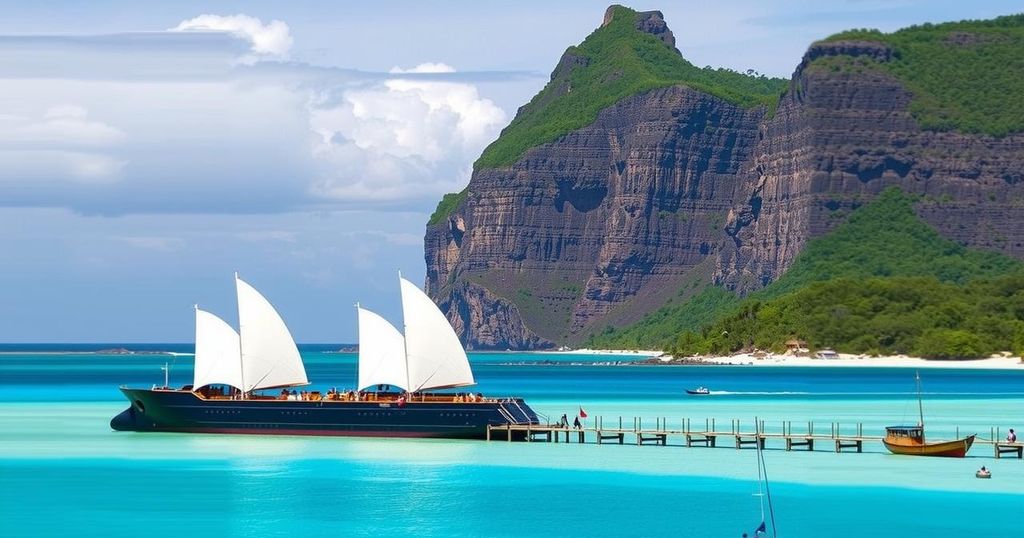Mauritius is reconsidering a recent U.K. deal on the Chagos Islands, expressing concerns over its benefits while policymakers navigate the complex historical and human rights issues entwined with Chagossian displacement and sovereignty negotiations. Recent joint commitments may lead to treaty finalization but risks excluding the affected communities from desired outcomes.
Mauritius has initiated a reexamination of its recent agreement with the United Kingdom regarding the Chagos Islands, prior to formalizing the treaty. Following the November elections, Prime Minister Navin Ramgoolam expressed concerns that the existing draft did not align with the island nation’s expectations for benefits. The Chagos Islands, previously administered as part of a British colony alongside Mauritius, were altered to become the British Indian Ocean Territory in 1965, with the U.K. retaining control after Mauritius gained independence in 1968, to allow for a U.S. military base on Diego Garcia. This control led to the controversial expulsion of Chagossians during the late 20th century, which has been labeled as a “crime against humanity” by Human Rights Watch.
The International Court of Justice (ICJ) offered support to Mauritius in 2019, advising against British control, yet the U.K. maintained its position until its recent announcement to cede sovereignty over Chagos while retaining military authority over Diego Garcia for up to 99 years. Many Chagossians view this outcome as a betrayal, especially as they feel excluded from negotiations that involve their ancestral lands. Bernadette Dugasse, a Chagossian now residing in the Seychelles, highlighted this exclusion, asserting the misrepresentation of their status.
Olivier Bancoult, leading the Chagos Refugees Group, echoed this sentiment yet remained hopeful that the Mauritian government would uphold their claims despite the administrative shift. Concerns also remain over the Chagos marine protected area (MPA), which critics argue was established to prevent the return of Chagossians to their lands, as the agreement considered developing a Mauritian MPA. On December 20, the U.K. and Mauritius issued a joint statement reaffirming their intention to quickly finalize the treaty while ensuring the continued operation of the Diego Garcia base under Mauritian sovereignty.
The Prime Minister’s office did not provide further comments on these developments, underlining the ongoing complexities surrounding the Chagos dispute and the future of both the islands and its displaced inhabitants.
The Chagos Islands, located in the Indian Ocean, have been a point of contention between Mauritius and the United Kingdom since the islands were separated from Mauritius in 1965. After Mauritius gained independence in 1968, the U.K. retained control over Chagos, leading to the establishment of a U.S. military base on Diego Garcia. This situation resulted in the forced removal of Chagossians, which has been condemned internationally. The ongoing negotiations over control and sovereignty are crucial not only for Mauritian national interests but also for the rights and future of the displaced Chagossian community.
In summary, Mauritius’ decision to revisit its agreement with the U.K. concerning the Chagos Islands reflects both political transitions and the complexities embedded within the historical context. The negotiations involve critical implications for sovereignty, military presence, and the rights of Chagossians, whose voices and interests are at risk of being overlooked in state-level discussions. As the situation evolves, the commitment to finalize a treaty swiftly must also account for the longstanding grievances of the displaced population.
Original Source: news.mongabay.com






